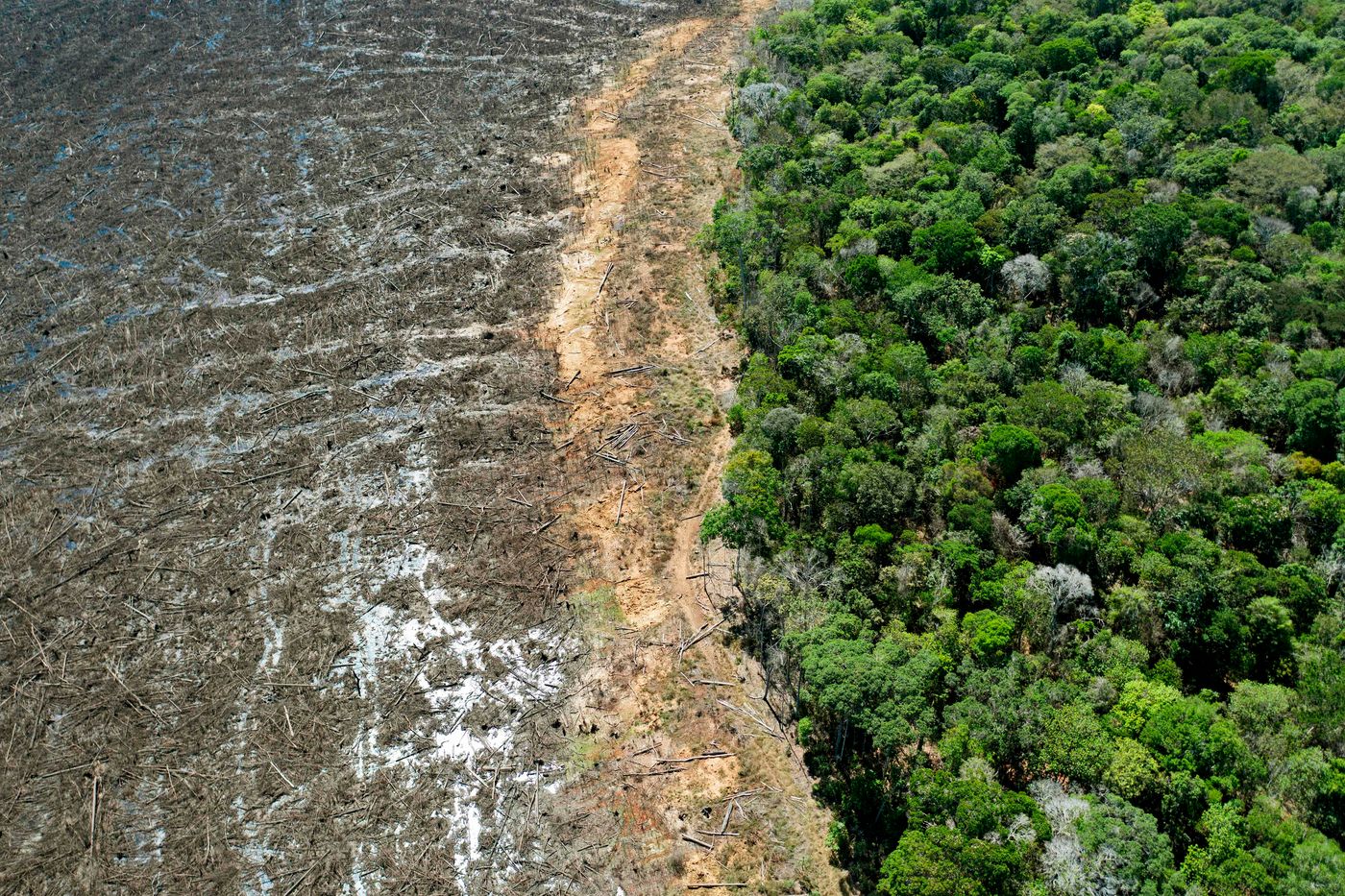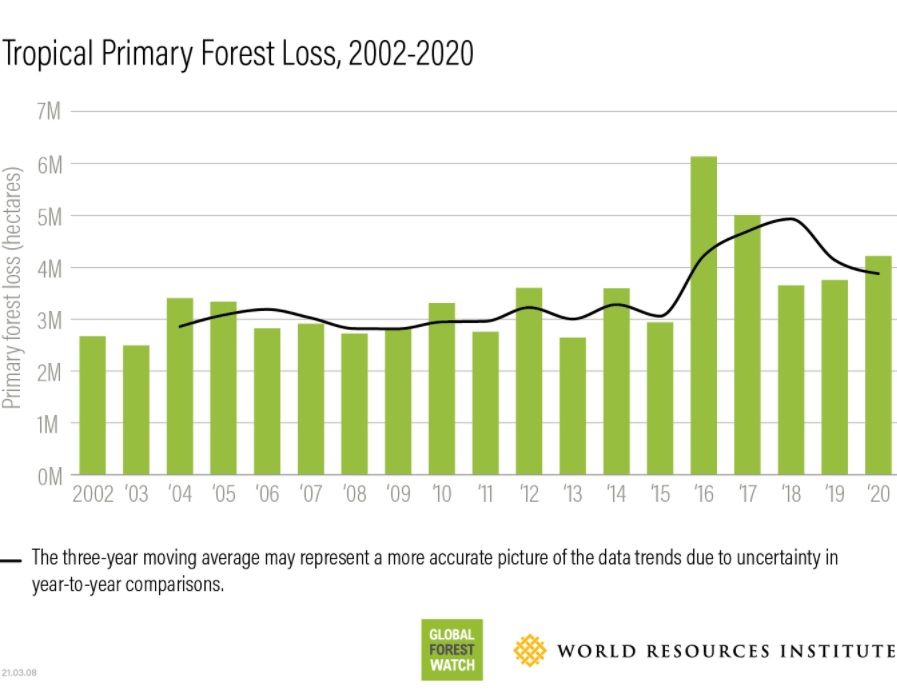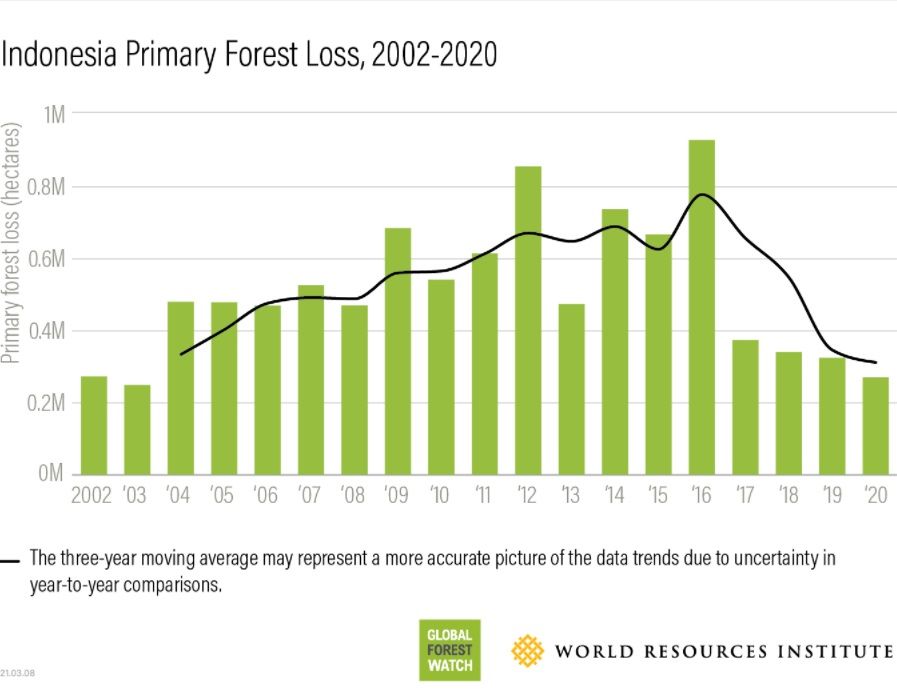
反對富豪瓜分世界.全球資源人民共享。People Before Profit!
How much forest area will we lose in 2020? about the size of the Netherlands
Author: Nathaniel Johnson
Source: Grist
Original publication date: March 31, 2021
Translation: Global Monitoring

Despite the dire warnings, corporate pledges and public tree-planting actions we've often heard so often, forests are disappearing at an alarming rate. In a recently published study, experts tallied the loss of the most important forests in 2020 and found that this is the size of the entire country of the Netherlands.
"Those dense forests may be hundreds of years old and store a lot of carbon," said Rod Taylor, director of the forest program at the non-profit World Resources Institute (WRI). They have irreversible impacts on biodiversity and climate change." WRI produced the report in partnership with Global Forest Watch. The two organizations have used satellite imagery to monitor Earth's forests for 20 years.
These pristine tropical forests that WRI focuses on do not undergo periodic cycles of felling and replanting like forests managed by timber companies. Left undisturbed, the 4.2 million hectares of pristine tropical forest lost in 2020 should have stood forever. Burning them released roughly 2.6 billion tons of carbon dioxide, according to the report, twice the annual emissions from U.S. cars.

Weather has become the main reason for the disappearance of forests. In places where last year was unusually hot and dry, such as Australia, Brazil, Bolivia, Germany and Russia, bushfires raged and forest cover loss surged. The swampy region of the Pantanal region in central and western Brazil has lost nearly a third of its forest cover after a drought. In Canada and Indonesia, by contrast, forest fires improved as the weather became cooler and wetter.
WRI researcher Francis Seymour said that as the climate warmed, it was clear that forests were becoming more and more vulnerable to severe weather. "I mean even the wetlands are burning now!" "Nature has been whispering to us about this risk for a long time, but now she is crying."
But there is also some reason for hope: Indonesia, which has been among the top three deforestation countries for the past 19 years, has dropped to fourth in 2020. This comes after four years of declining tree cover.
Indonesia has had good luck with the weather, with unusually heavy rainfall last year. A drop in palm oil prices during the pandemic has eased the economic pressure to clear forests for palm plantations. But Seymour said some of the credit should also go to the government, which took decisive action to curb deforestation in the wake of devastating fires in 2016 and 2017.

Cargill, Singapore-based Wilmar International and other major palm oil trading companies have pledged to freeze deforested plantations, but the bad guys remain. Palm oil prices have rebounded this year, which could make it difficult for them to keep their promises. "I think this year and the next two or three years will really test whether Indonesia can maintain its performance in reducing deforestation," said Andika Putraditama, manager of sustainable commodities and commerce at WRI Indonesia.
Last year, deforestation in Africa appeared to have come mainly from the migration of smallholder farmers rather than from big companies with large plantations. Farmers need to clear forests to feed their families, or tree branches to make fires for cooking. Therefore, in the Central African region, the premise of forest protection is to improve the agricultural practices of farmers, not to restrict farming. People have been expanding into forests because they don't have basic resources, such as fertilizers, to keep farming on existing farmland, said Elie Hakizumwami, WRI's country manager for the Democratic Republic of Congo.
Like my work?
Don't forget to support or like, so I know you are with me..
Comment…